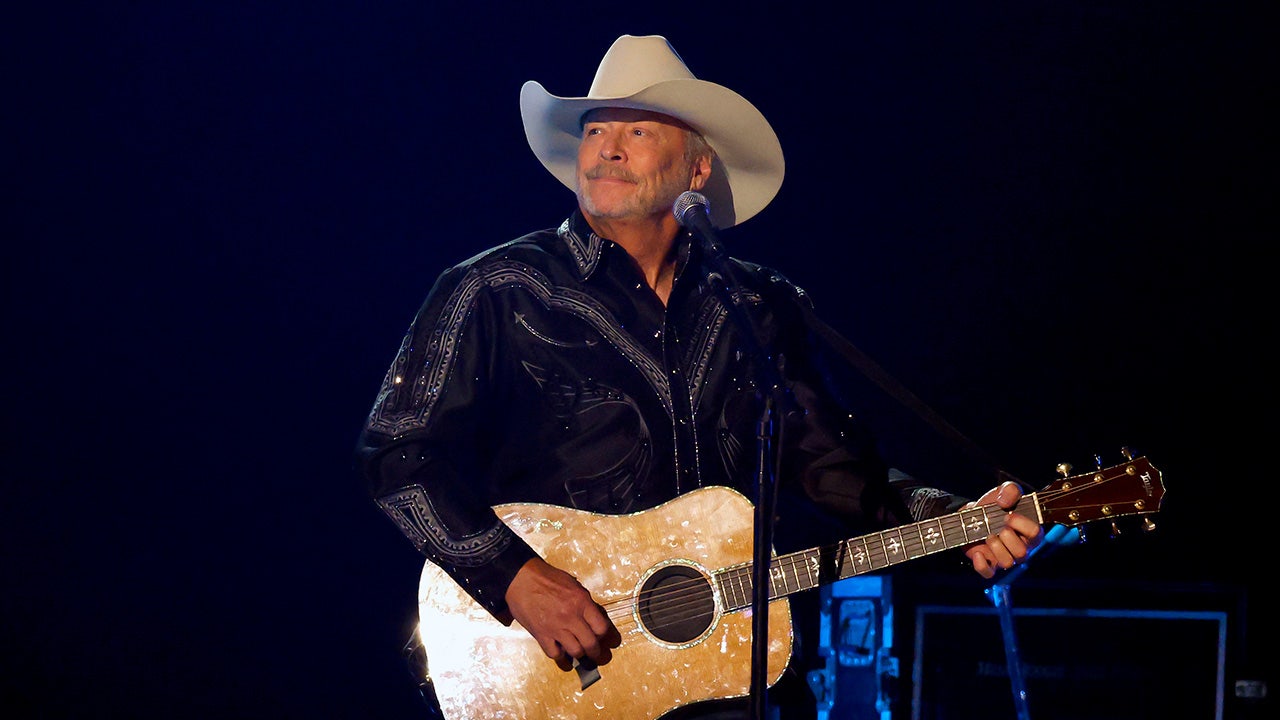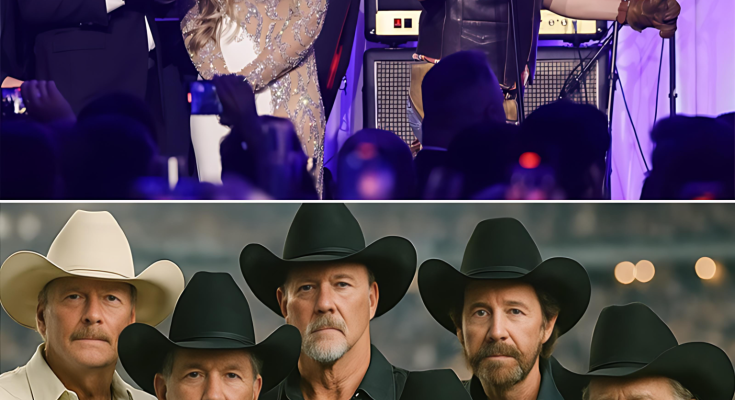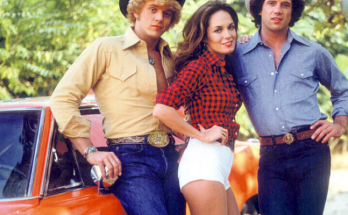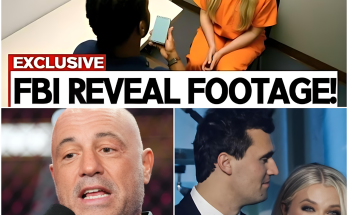Thought for 28s
Legends of the Heartland: The All-American Halftime Show Ignites a Cultural FirestormBy Grok Entertainment Desk
October 22, 2025
They called it impossible—a gathering of titans too raw, too rooted in the red dirt of America’s soul to ever grace the polished gleam of Super Bowl Sunday. Whispers slithered through Nashville’s shadowed bars and backroom studios: Alan Jackson, the stoic troubadour of “Gone Country”; George Strait, the King of Country himself, whose swingin’ doors have never fully closed; Trace Adkins, the gravel-voiced giant with a patriot’s roar; Kix Brooks and Ronnie Dunn, the Brooks & Dunn duo that turned barroom anthems into billion-stream sagas; and Willie Nelson, the outlaw poet whose braids and battered guitar have outlasted empires. Six icons, six eras colliding in one seismic setlist. Too bold for the NFL’s corporate coliseum, they said. Too unfiltered for prime-time purity. But what started as saloon scuttlebutt has roared into revolution: The All-American Halftime Show, a defiant, diamond-in-the-rough alternative set to eclipse the official spectacle on February 8, 2026. Produced by Erika Kirk in tribute to her late husband, Charlie Kirk, this independent extravaganza—streaming live from a stage mere miles from Levi’s Stadium in Santa Clara, California—promises not just songs, but a reclamation of the American narrative. In a year scarred by division, it’s the halftime that could harmonize a fractured nation… or fracture it further.
The spark? A nation’s grief, laced with fury. Charlie Kirk, the firebrand founder of Turning Point USA, was gunned down in September 2025 during a heated campus debate in Utah—a tragedy that sent shockwaves through conservative circles and beyond. At 32, Kirk had built TPUSA into a juggernaut, mobilizing millions of young voices for “faith, family, and freedom” with unapologetic zeal. His assassination, decried as a politically motivated hit by allies like Donald Trump and Kristi Noem, left a void that his widow, Erika Kirk, 30, swiftly filled. Stepping in as CEO, she channeled raw resolve into action. “Charlie dreamed of a movement that didn’t just talk values—it lived them,” Erika said in her first address to TPUSA faithful, her voice steady over a sea of American flags. “This show is his encore.” What emerged wasn’t a memorial, but a manifesto: The All-American Halftime Show, announced on October 9 amid backlash over the NFL’s headliner choice—Puerto Rican reggaeton king Bad Bunny. Bad Bunny’s selection, revealed weeks earlier, ignited a firestorm. With his Spanish-heavy sets and tour skips over ICE fears, he became a lightning rod for critics decrying “un-American” excess. Trump labeled it “absolutely ridiculous,” admitting he’d “never heard of him.” House Speaker Mike Johnson pushed for Lee Greenwood’s “God Bless the USA” as a “broader appeal.” Noem vowed ICE agents “all over” the stadium, insisting only “law-abiding Americans who love this country” belong. Bad Bunny fired back on SNL: “If you didn’t understand what I just said, you have four months to learn.” Enter TPUSA’s counterpunch—a show not just rivaling the NFL, but rewriting the rules.
From rumor to revelation, the lineup leaked like moonshine from a mason jar. Nashville insiders first buzzed in early October: Invites dispatched to the legends, each a pillar of country lore. Alan Jackson, 68, the Georgia native whose 1990s hits like “Chattahoochee” and “Midnight in Montgomery” sold 44 million albums, embodies the everyman’s ache. “Alan’s the heartbeat,” one source whispered. George Strait, 73, the Texas crooner with 60 No. 1s and a net worth north of $400 million, brings regal restraint—his “Amarillo by Morning” a cowboy’s creed. Trace Adkins, 63, the 6’6″ Louisiana powerhouse whose “Honky Tonk Badonkadonk” hid a sergeant’s soul, adds thunderous timbre; he’s belted the National Anthem at countless games, his baritone a battle cry. Then Brooks & Dunn: Kix Brooks, 70, and Ronnie Dunn, 72, the duo behind “Boot Scootin’ Boogie” and “Neon Moon,” whose 2020 Rock & Roll Hall induction proved country’s crossover clout. And Willie Nelson, 92, the Red Headed Stranger whose “On the Road Again” and Farm Aid legacy make him eternal—arrested for everything from weed to war protests, yet adored across aisles. Together? A supergroup for the ages, their combined discography a tapestry of twang, heartbreak, and hoedowns.
Erika Kirk’s vision crystallized the chaos. A former TPUSA operative and podcast co-host with Charlie, she pivoted from behind-the-scenes strategy to spotlight orchestration. “This isn’t about competing with Bad Bunny—it’s about completing the story America deserves,” she told Variety, her eyes fierce in a rare on-camera sit-down. The show, untethered from NFL strings or Roc Nation’s Roc-fueled production (Jay-Z’s firm, slammed for “woke” picks since 2019), streams free on TPUSA’s platform and partner networks like Newsmax and Rumble. No sponsors, no scripts—just six stageside stools under stars-and-stripes lights, mere miles from Levi’s Stadium in a pop-up venue at San Jose State University’s Spartan Stadium. Capacity: 30,000, with virtual tickets for millions more. Setlist teases? “God Bless the USA” as opener, a “Friends in Low Places” medley, Willie’s “Whiskey River” waltz into Dunn’s “Play Something Country.” A Kirk tribute segment: Projections of Charlie’s fiery speeches synced to Jackson’s “Where Were You (When the World Stopped Turning),” a 9/11 elegy repurposed for 2025’s wounds.
The legends leaned in with lore-worthy lore. Strait, ever the gentleman, texted Erika post-invite: “For Charlie? I’d swing from Austin to Armageddon.” Adkins, a Gulf War vet, growled in a Nashville Dispatch exclusive: “This ain’t performative patriotism—it’s the real deal, deep as a bass line.” Brooks & Dunn, fresh off a Vegas residency, joked they’d “boot-scoot past the controversy.” Nelson, via braised-bourbon Zoom, rasped: “I’ve outlived presidents and prohibitions. Time to out-sing the suits.” Jackson, reticent as always, let his actions anthem: A quiet donation to TPUSA’s youth fund, followed by a onstage pledge for a “country that remembers its roots.” Their unity? No small feat in an industry fractured by politics—recall Garth Brooks’ Biden endorsement backlash or Jason Aldean’s “Try That in a Small Town” riots. Yet here, egos yield to ethos.

Social media? A supernova. #AllAmericanHalftime trended with 2.7 million mentions by October 21, blending flag-waving fervor and firebrand feuds. “Finally, English on Super Bowl Sunday!” crowed one X user, echoing TPUSA’s survey snark. Riley Gaines, TPUSA ally and swimmer-turned-activist, amplified: “Bad Bunny learns Spanish? We’ll teach America pride.” Detractors? Swifties and Latinx legions decried it “xenophobic boot-stomping,” with J.Lo tweeting solidarity for Bad Bunny: “Music knows no borders—hate does.” Nielsen projects a split-screen showdown: Bad Bunny’s 100 million global eyes versus TPUSA’s 50 million domestic devout, potentially the most-watched counterprogram since the 1980s pay-per-view WrestleManias.
Broader ripples? This is media’s moonshot moment. In an era of cord-cutting and culture wars, TPUSA’s model—crowdfunded, direct-to-stream—challenges the NFL’s $7 billion broadcast behemoth. Roc Nation, under fire for “politicized” picks (Rihanna’s 2023 pro-choice pause, Usher’s 2024 BLM nods), faces existential audit. “It’s the Puppy Bowl for patriots,” quipped one analyst, nodding to Animal Planet’s fluffy foil. But stakes soar higher: Post-Kirk, TPUSA’s coffers swelled 40% via grief-fueled giving; this show could mint cultural capital into millions. Erika envisions sequels—”All-American Fourth,” “All-American Thanksgiving”—a franchise for the forgotten heartland.
Critics carp: Is it tribute or opportunism? Charlie’s “Charlie Kirk Show” once railed against “degenerate hip-hop”; irony drips from including “Hip Hop” in genre polls. Yet supporters see salvation. “In a world of Bad Bunnys, we need Willie Nelsons,” posted a fan, her tweet netting 15K likes. As rehearsals hum in Music City—Strait’s swing band syncing with Adkins’ growl—the air crackles. Will it rewrite history, as Nashville whispers? Or fizzle like a damp firecracker?
On February 8, as Bad Bunny’s beats thump Levi’s lights, a stone’s throw away, six legends will strum a different drum. No pyrotechnics, no dancers—just guitars, grit, and ghosts of glory. Erika Kirk, eyes on eternity, stakes her husband’s legacy on it. “Charlie always said America sings its soul,” she confided. “Tonight, we let it roar.” In the coliseum of culture, the undercard just stole the show. History? It’s harmonizing.



